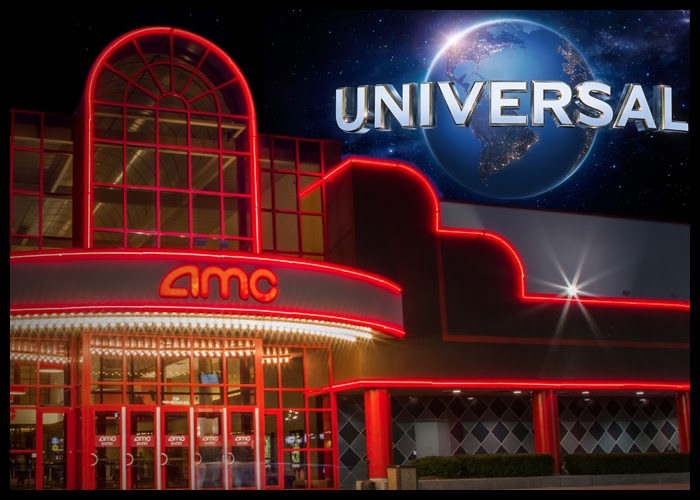Photo by: rttnew.com
Earlier this year, an unusual conflict broke out between the major film studio Universal Pictures and prominent theater chain AMC. When Universal’s animated film “Trolls: World Tour”, originally intended to be released in theaters in April of this current year, was instead released through video on demand as a result of the emerging COVID-19 pandemic, this apparent foregoing of theatrical release drew the ire of many of the nation’s largest movie theater owners, including AMC. When Universal, seemingly satisfied with the success of “Trolls: World Tour” and how the film was distributed, announced it would consider similar release strategies for any of their upcoming films, AMC did not hesitate to respond. Shortly after Universal’s announcement, AMC declared that none of the company’s numerous theaters would exhibit any film made by Universal from that point on. What followed was an ongoing back-and-forth struggle between the theater giant and the studio giant that made people question how this conflict could impact the future of films being released theatrically.
That conflict just recently came to an end however (or at least it has for the time being). On Tuesday July 28th, 2020 AMC and Universal struck a deal regarding the theatrical window of future Universal releases, one that would allow Universal to have its films shown at AMC theaters once again. According to the terms, after seventeen days (including three weekends) of exhibition at AMC theaters, Universal would make their films available through premium video on demand, with AMC receiving a percentage of the revenue gained through on demand releasing. At the moment, the deal only applies to theaters located in the United States, although both companies have expressed a desire to broaden the agreement to AMC locations in other parts of the world in the near future. According to Universal, there is currently no set price for each upcoming VOD release, although it’s not expected to be too far off from the $19.99 charge that “Trolls: World Tour” was given for a 48-hour rental.
Before the agreement, it had long been a policy among major film studios that films would be shown in theaters for at least three months before they could be released to home media. However, the arrival of the Coronavirus pandemic and the subsequent closure of the majority of the nation’s movie theaters has forced studios to make major changes in how they release their multi-million dollar productions. Many of the larger blockbusters have had their theatrical release dates pushed back extensively (to a point where some have even been indefinitely postponed), as they are so expensive that they cannot make a profit without theatrical distribution.
In the case of “Trolls: World Tour” (as well as another animated feature, Warner Brothers’ “Scoob!”) however, it was theorized that immediate home video release could prove to be just as profitable, and if Universal’s satisfaction with the animated feature’s performance is any indication, there does seem to be some merit to quickly releasing films onto premium VOD.
While this strategy may prove to be economically beneficial to those making movies, especially since VOD generates more profit for the studio than theaters, the same cannot be said for those showing movies. By immediately releasing “Trolls: World Tour” onto VOD, Universal has deprived the theaters that had originally intended to showcase the film of the money that such a film would have given them. A medium-scale film like “Trolls: World Tour” might not have had that big of an impact on theaters, but had this strategy been applied to a much larger picture like the upcoming additions to Universal’s “Fast and the Furious” and “Jurassic World” series, a much larger source of revenue, one necessary for keeping theaters afloat, would’ve been unavailable. With this being a possibility, it’s no surprise that a major theater chain like AMC would immediately protest against Universal’s decision to give some of their films immediate VOD release.
In an ideal world, all of this would’ve been quickly resolved, with Universal reconsidering its desire to release its films instantly through VOD and AMC allowing its theaters to showcase Universal films once again. However, because the pandemic continues to keep most of the nation’s theaters closed, both studios and theaters have had to find new ways of generating revenue in order to prevent themselves from completely going out of business. In many respects, this seventeen-day compromise feels like the only reasonable solution for the time being. With it, studios don’t have to wait as long to get films released through home media (where they would receive a larger profit margin), and theaters can still get some of the revenue earned through these sales even if the films aren’t on their screens for as long.
Will this drastically shortened theatrical window lead to similar measures being implemented throughout the entirety of the film industry? At the moment, it’s possible, but the likelihood is not immediately clear. At the moment, this arrangement is only between one film studio and one theater chain. Universal still has to abide by the three-month window when releasing their films through other theater companies like Regal and Cinemark. Conversely, theaters owned by AMC will get to show films made by Disney, Warner Brothers, and other studios for a similar duration of time before the studios get to release them onto home media. Still, that could all change much sooner than expected, and despite recent announcements that chains like Regal could start reopening by the end of August, there’s no guarantee that movie theaters will be back up and running any time soon (or even profitable if they do end up reopening). The pandemic has changed the film industry in ways that might not be reversible in the long run, and home media is the only thing keeping studios afloat for the time being. If push comes to shove, it may be the only thing keeping theaters afloat as well.




